How many Japanese words and phrases do you need to know as a tourist in Japan? Although we love the idea of getting lost in Tokyo or Osaka, Japan is a country where a strong grasp of the language can help you save lots of time and energy. Enter: this personal crash course in Japanese that will turn any beginner in Japanese into a sensei.
For all those moments when flailing and pointing at the menu won’t cut it, we’ve gathered the most basic Japanese words that any traveller needs to survive in Japan. Whether your vocabulary comes from samurai movies or stock anime knowledge from your childhood, these essential Japanese expressions will take you from “huh?” to wakarimashita!
Also read: 24 Quirky Things You Realise Are Actually True After You Visit Japan
Basic Japanese greetings and expressions for everyday use
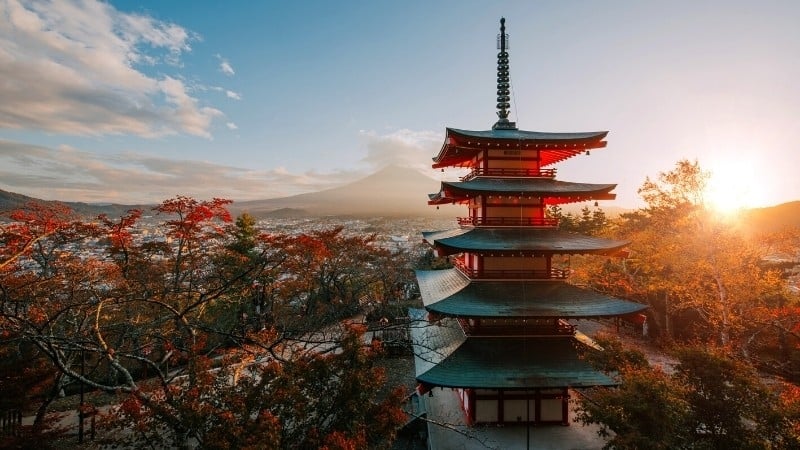
Image credit: Cristian Negroni via Canva Pro
1. Ohayou gozaimasu
What it means: Good morning
Ohayou gozaimasu is the polite and formal way to say “good morning” in Japanese. This is appropriate for when you’re speaking to a stranger or someone older than you. But if you’re greeting friends or someone you’re close to, ohayou will suffice as a casual greeting.
Since many Japanese citizens tend to wake up very early in the day, this phrase is not typically used after 10.30am.
2. Konnichiwa
What it means: Hello / Good afternoon
When you are past the hours of the morning, konnichiwa is the standard expression for saying “hello” or “hi” in Japanese. It can also mean “good afternoon” or “good day.”
3. Konbanwa
What it means: Good evening
If the sky is already dark outside, you say konbanwa to greet someone a “good evening” in Japanese. Take note, however, that this Japanese phrase should not be mistaken with oyasumi nasai, which is used to wish someone a “good night” before going to bed and sleeping.
4. Arigatou gozaimasu
What it means: Thank you
Naturally, you can’t go to Japan without learning how to say “thank you” in Japanese first. Saying arigatou gozaimasu (formal) or arigatou (informal) communicates your gratitude towards someone who has served you or gone out of their way to help you.
Arigatou gozaimasu is a polite way to address strangers and people older than you, while arigatou is commonly reserved for friends who are your age or those who are younger than you.
5. Douitashimashite
What it means: You’re welcome
After saying thanks in Japanese, you might hear the other person respond in turn with douitashimashite, which means “you’re welcome.”
6. Onegaishimasu
What it means: Please
Need to make a request from someone? Onegaishimasu means “please” in Japanese, while onegai is the shorter and more informal version.
7. Hai
What it means: Yes
To give an affirmative response in Japanese, say hai or “yes” in an enthusiastic tone.
8. Iie
What it means: No
To give a negative response or deny something, say iie or “no.”
Meeting and greeting people
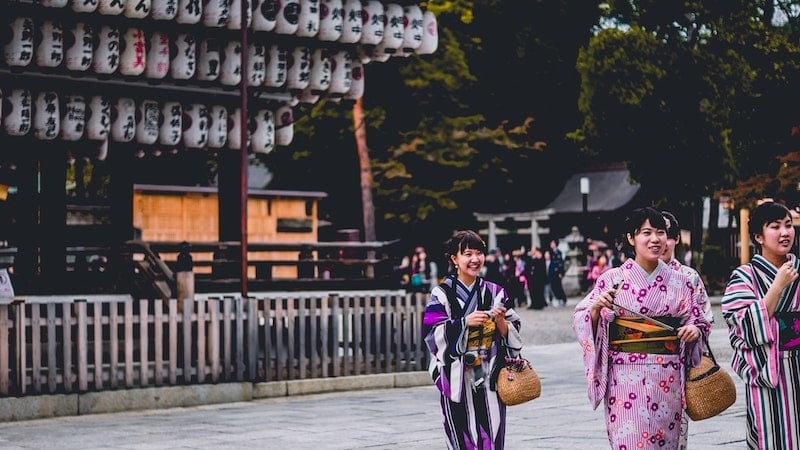
Image credit: bantersnaps
9. Watashi wa ~ / Watashi no namae wa ~
What it means: I am (name or noun)
To introduce yourself, say watashi wa (“I am”) or watashi no namae wa (“My name is”) and then mention your name. Don’t forget to add desu at the end of the sentence for politeness.
Consider this sample introduction: Watashi wa Tiffany desu. (“I am Tiffany.”) This is the more casual way of stating your name, as opposed to the lengthier and more formal manner: Watashi no namae wa Tiffany desu. (“My name is Tiffany.”) While both are grammatically correct, the phrase is rarely used in its entirety when greeting people in casual conversations.
Additionally, you can use watashi to describe yourself. If you wish to clarify your status as a foreigner for example, say the following phrase: Watashi wa gaikokujin desu (“I am a foreigner”).
10. O genki desu ka?
What it means: How are you?
If you’re meeting someone for the first time, expect them to ask you this question: O genki desu ka? (“How are you?”) To which you can reply the following:
11. Genki desu
What it means: I’m fine / I’m well
The most common response to the question above is genki desu, which means that you are doing fine or well.
12. Yoroshiku onegaishimasu
What it means: It’s nice to meet you
Want to impress your new friends or colleagues in Japan? To say “it’s nice to meet you” in formal Japanese, use yoroshiku onegaishimasu.
13. Hajimemashite
What it means: It’s nice to meet you
In more casual situations, the Japanese expression hajimamashite is another way to greet new people and introduce yourself by saying “it’s nice to meet you.”
Eating and drinking in Japan
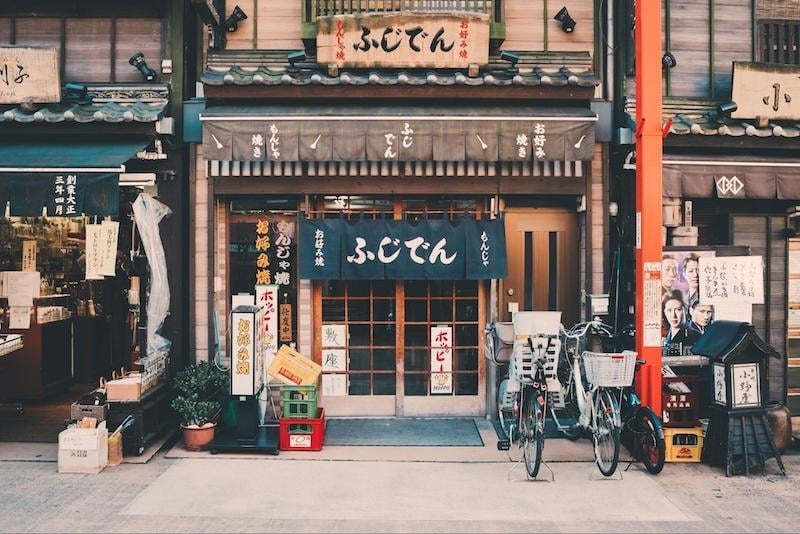
Image credit: Clay Banks
14. Itadakimasu
What it means: Let’s eat / Dig in
If you’ve ever eaten at a Japanese restaurant, this phrase will sound familiar to you. itadakimasu is a popular expression in Japan that translates to “I receive the food” but is commonly understood as “let’s eat” in English. More importantly, it’s a way of showing respect and appreciation for your meal.
Take note that this phrase should always be said before eating, not after. What’s more, you should be careful not to start eating until everybody in your group is already seated at the table, lest you come across as rude or ungrateful.
15. Gochisousama deshita
What it means: Thank you for the meal
Once you’ve finished eating, you say gochisousama deshita, which means “thank you for the meal” in Japanese. This gives thanks to everyone who put effort into the meal, from the restaurant servers to the kind host who prepared the food.
16. ~ wo kudasai
What it means: May I have (object) please? / Please give me (object)?
Now, this phrase is very useful for ordering food and drinks at restaurants, cafes, or bars in Japan. While conversing with a waiter, for example, you can use the following phrase: Koucha wo kudasai. (“May I have tea?”). Or if you are feeling thirsty, say, mizu wo kudasai. (“Please give me water.”).
17. Kanpai
What it means: Cheers / Bottoms up / Toast
Some of you might already know this one by heart. Before downing a shot of sake with your friends, say kanpai or “cheers!”
Important Japanese phrases to help you find your way
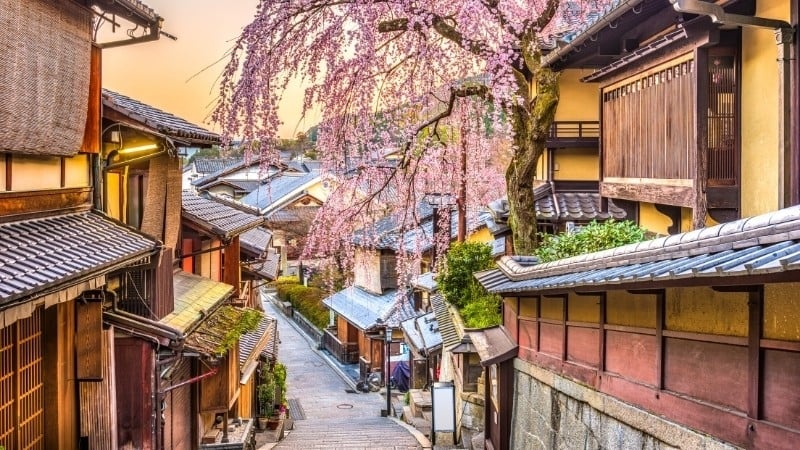
Image credit: Sean Pavone via Canva Pro
18. Sumimasen
What it means: Excuse me / I am sorry
If you want to get a person’s attention, saying sumimasen (meaning “excuse me” or “I am sorry”) is a respectful way to address a stranger before bringing up a request. Whenever you need to ask for directions or seek assistance from someone, this is one of the most useful Japanese words you’ll need to know.
Sumimasen can also be a casual way of saying “I am sorry” when you accidentally inconvenience them in some way.
19. Gomen nasai
What it means: I am sorry
If you’ve done something more serious, like stepping on someone’s foot or bumping into someone when the train suddenly sways, you want to communicate that you didn’t mean any harm and that you are sincerely sorry. In these kinds of scenarios, it’s more appropriate to bow your head slightly and say gomen nasai (“I’m sorry”) instead of sumimasen.
20. Eigo wo hanashimasu ka?
What it means: Do you speak English?
It’s worth asking, right? Some locals might want to practise their skills in the English language — or rather, eigo in Japanese.
Many will shake their heads when you ask them if they can speak English, but don’t worry; the main objective of this phrase is to convey that you are an English-speaking tourist. This way, the locals will realise that your grasp of Japanese phrases is limited. They will be more patient with you or rely on non-verbal cues to offer guidance or directions.
21. Mou ichido onegaishimasu
What it means: Can you say that again please?
When you don’t fully understand what a person said and you need to ask for clarification, you can ask them to repeat their statement with mou ichido onegaishimasu. (“Can you say that again please?”) In this scenario, mou is a Japanese adverb that means “again” or “more.”
22. Wakarimasen
What it means: I don’t understand / I have no idea
Since you will be surrounded by native Japanese speakers, there’s always a chance that the people you’re talking to will utter more obscure words than you can understand.
When that happens, you can say sumimasen, nihongo ga wakarimasen. (“I’m sorry, “I don’t understand Japanese”). Or in short, wakarimasen. (“I don’t understand.”)
23. Wakarimashita
What it means: I understand
But if you do understand what they’re saying, say wakarimashita (“I understand.”)
24. Toire wa doko desu ka?
What it means: Where is the toilet?
Don’t leave for Japan without knowing what this phrase means! When you want to inquire about where to find a certain place or object, you can use this sentence pattern: object or place + “wa doko desu ka?”
If you are looking for the comfort station or water closet, for example, you can ask: Toire wa doko desu ka? (“Where is the toilet?”). In this sentence, we are using toire or “toilet” as the object to find, since looking for the restroom is a common problem for tourists in Japan.
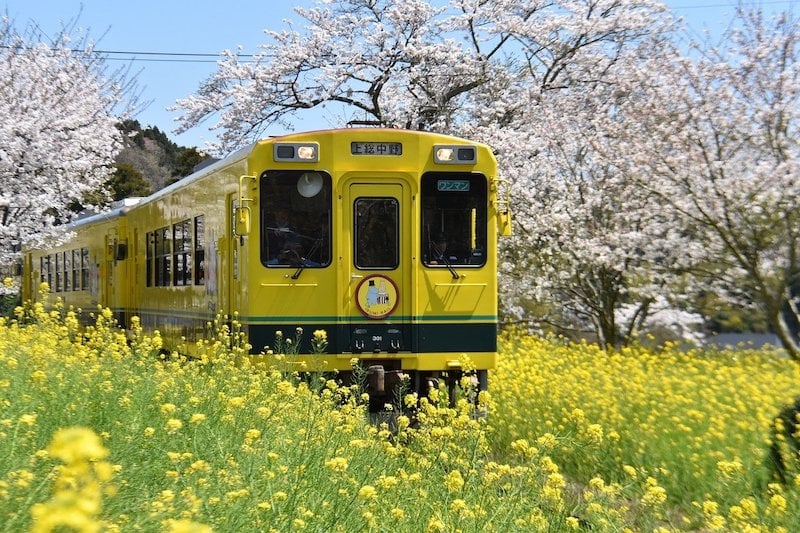
Image credit: happysmilelau
Harajuku wa doko desu ka (“where is Harajuku?”) and densha wa doko desu ka (“where is the train?”) are other examples of this question in Japanese.
Shopping and buying things in Japan

Image credit: RichLegg via Canva Pro
25. ~ ga arimasu ka?
What it means: Do you have (object)?
Are you looking for something specific in Japan? You could be wandering Books Kinokuniya in Shibuya while searching for a Haruki Murakami novel, but you’re not sure if they have it in their store. This is how you can ask the staff for help in finding what you need:
To inquire about the availability of a certain object or item, use this sentence structure: (object) + ga arimasu ka? If you want to ask if a store is selling books, for example, you would use the following phrase: Hon ga arimasu ka? (“Do you have books?”)
26. Kore wa nan desu ka?
What it means: What is this?
If you don’t know what a particular object is, you can ask this question: Kore wa nan desu ka? (“What is this?”)
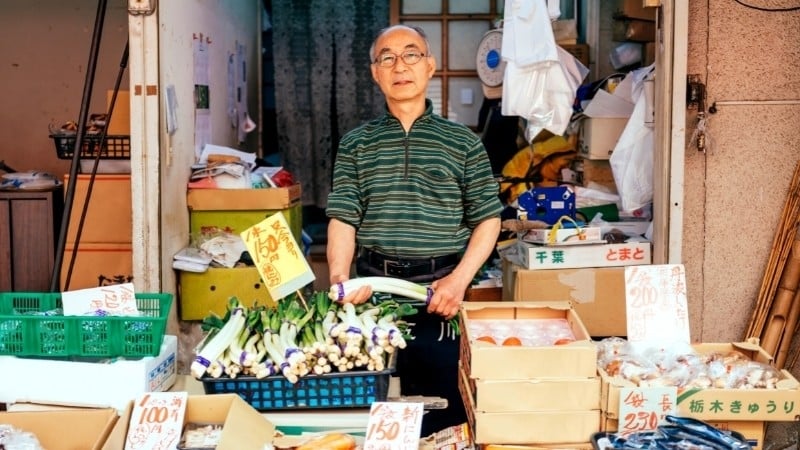
Image credit: RichLegg via Canva Pro
27. Kore wa ikura desu ka?
What it means: How much does this cost? / What is the price of this?
If you want to know how much a particular item costs but you cannot find a price tag with the Japanese yen symbol (¥) anywhere, simply ask this question: Kore wa ikura desu ka? (“How much does this cost?”
If we break down this sentence, ikura means “how much,” while kore refers to “this” or the nearby object whose price you wish to learn about.
Saying goodbye and wishing someone well in Japanese
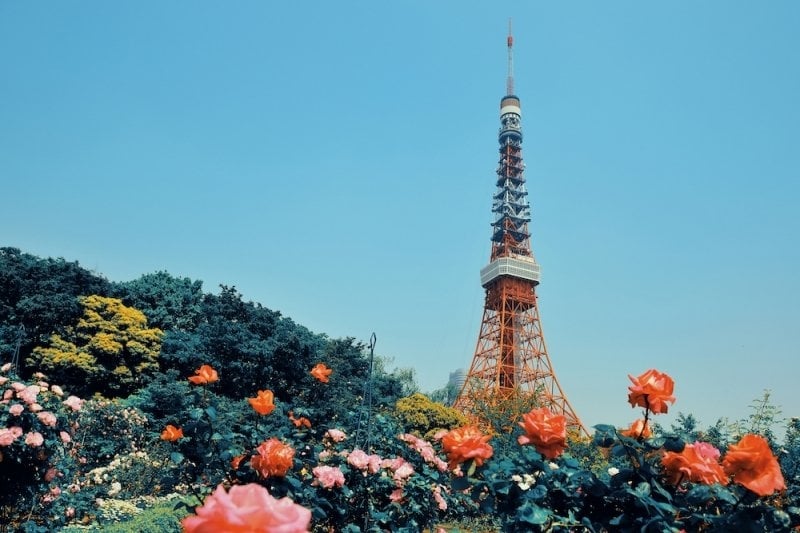
Image credit: rabbit75_ist via Canva Pro
28. Sayonara
What it means: Goodbye / Farewell
Curious about how to say goodbye in Japanese? While sayonara might be on the tip of your tongue, that word has a slightly bittersweet or wistful tone to it. The meaning of sayonara rings closer to “farewell,” as if you will never see this person again. Therefore, you should reserve sayonara for more formal occasions or moments that involve a sense of finality.
29. Ja mata
What it means: See you later / See you again
If you are looking for a more casual way to say “bye” in Japanese, then you’re more likely to use ja mata, meaning “see you later.” It doesn’t have such a strong sense of an ending as saying sayonara.
Other informal variations of this phrase are ja ne, which translates to “see you;” and mata ashita, for when you want to say, “see you tomorrow.”
30. Ganbatte
What it means: Good luck / Do your best
When you want to cheer someone on and encourage them not to give up on a task, say ganbatte to wish them “good luck.” Not only does this phrase give encouragement and support, but it radiates positivity and provides motivation for a person to keep going.
Summary of Japanese words and phrases
Planning to visit Japan when borders open safely in the future? Check out this quick rundown of the basic Japanese phrases and expressions you should master:
| 1 | Ohayou gozaimasu | “Good morning” |
| 2 | Konnichiwa | “Hello” / “Good afternoon” |
| 3 | Konbanwa | “Good evening” |
| 4 | Arigatou gozaimasu | “Thank you” |
| 5 | Douitashimashite | “You’re welcome” |
| 6 | Onegaishimasu | “Please |
| 7 | Hai | “Yes” |
| 8 | Iie | “No” |
| 9 | Watashi wa | “I am” |
| 10 | O genki desu ka? | “How are you?” |
| 11 | Genki desu | “I’m fine, thank you” |
| 12 | Yoroshiku onegaishimasu | “It’s nice to meet you” (formal) |
| 13 | Hajimemashite | “It’s nice to meet you”(informal) |
| 14 | Itadakimasu | “Let’s eat” |
| 15 | Gochisousama deshita | “Thank you for the meal” |
| 16 | ~ wo kudasai | “May I have (object) please?” / “Please give me (object)” |
| 17 | Kanpai | “Cheers” |
| 18 | Sumimasen | “Excuse me” |
| 19 | Gomen nasai | “I am sorry” |
| 20 | Eigo wo hanashimasu ka? | “Do you speak English?” |
| 21 | Mou ichido onegaishimasu | “Can you say that again please?” |
| 22 | Wakarimasen | “I don’t understand” |
| 23 | Wakarimashita | “I understand” |
| 24 | Toire wa doko desu ka? | “Where is the toilet” |
| 25 | ~ ga arimasu ka? | “Do you have (object)?” |
| 26 | Kore wa nan desu ka? | “What is this?” |
| 27 | Kore wa ikura desu ka? | “Kore wa ikura desu ka?” |
| 28 | Sayonara | “Goodbye” |
| 29 | Ja mata | “See you later” |
| 30 | Ganbatte | “Good luck” |
Now, you know the Japanese words and phrases to navigate the streets like a pro. Once you’re ready to visit Japan, you can bridge the language gap and meet the locals halfway!
Also read: 15 Japanese Customs & Don’ts You Should Know While Visiting Japan
Now that this article has ended, you can officially say this phrase: Sukoshi nihongo wo hanashimasu. That is to say, “I speak a little Japanese!” Happy travel planning, and ganbatte ne!




